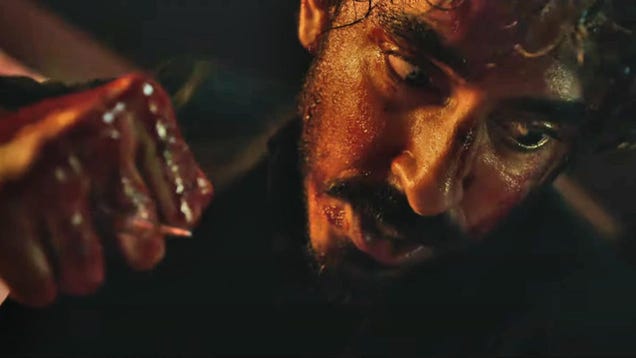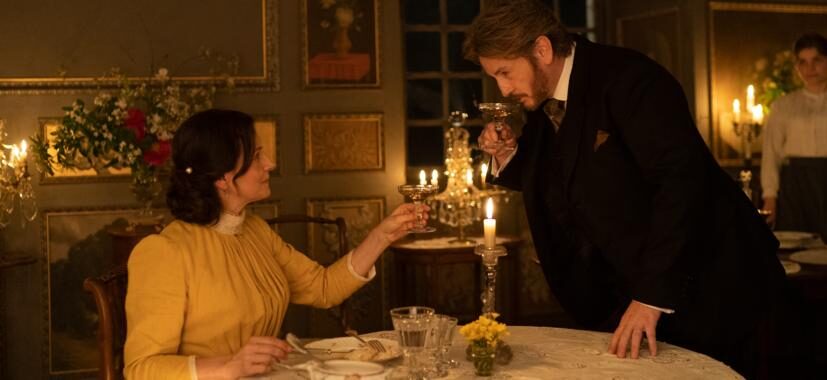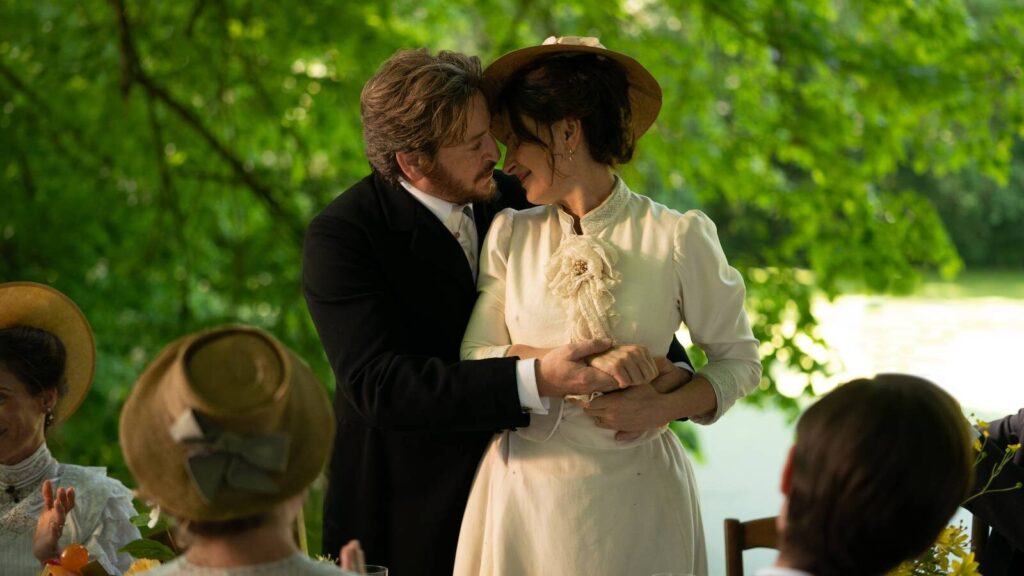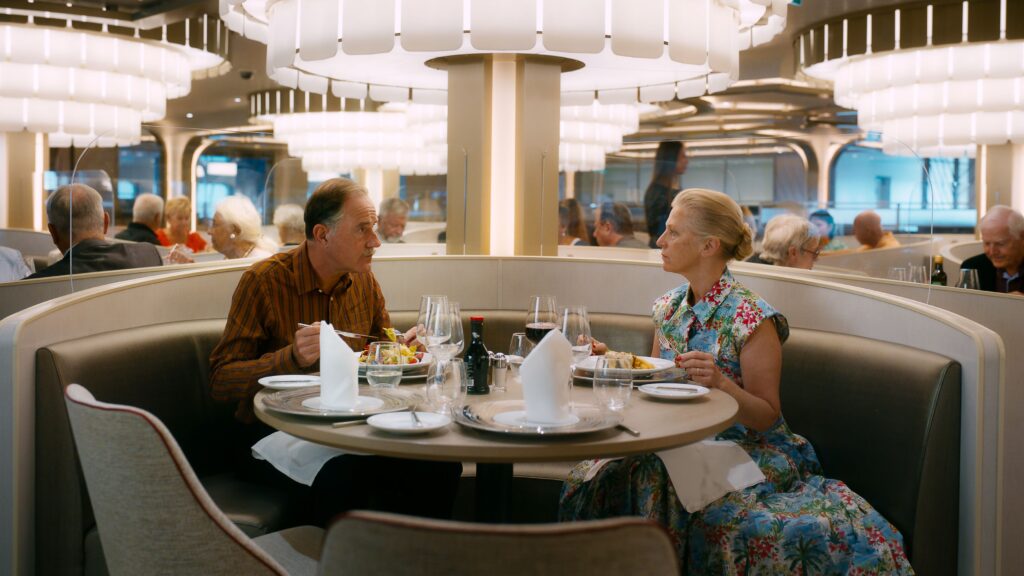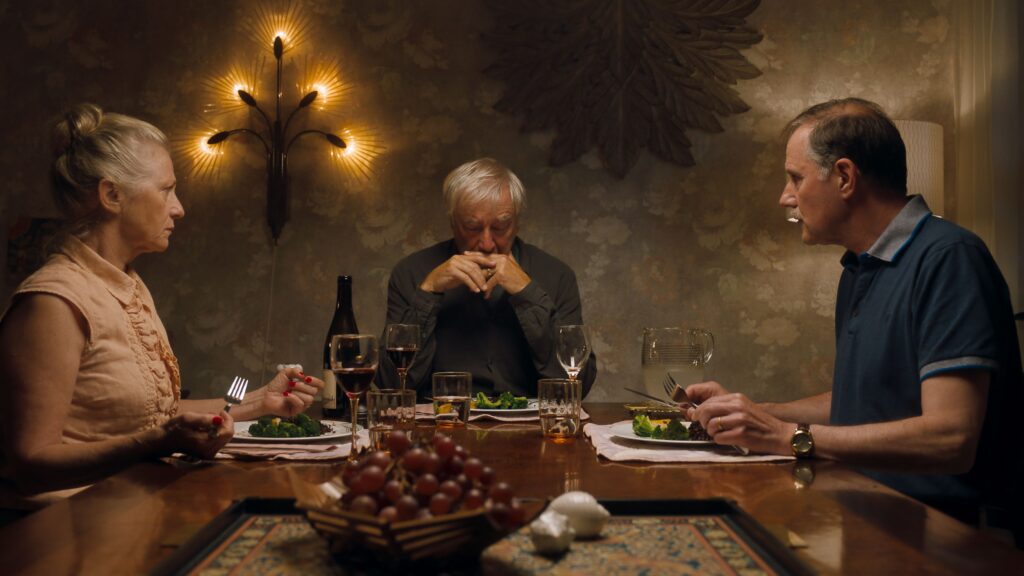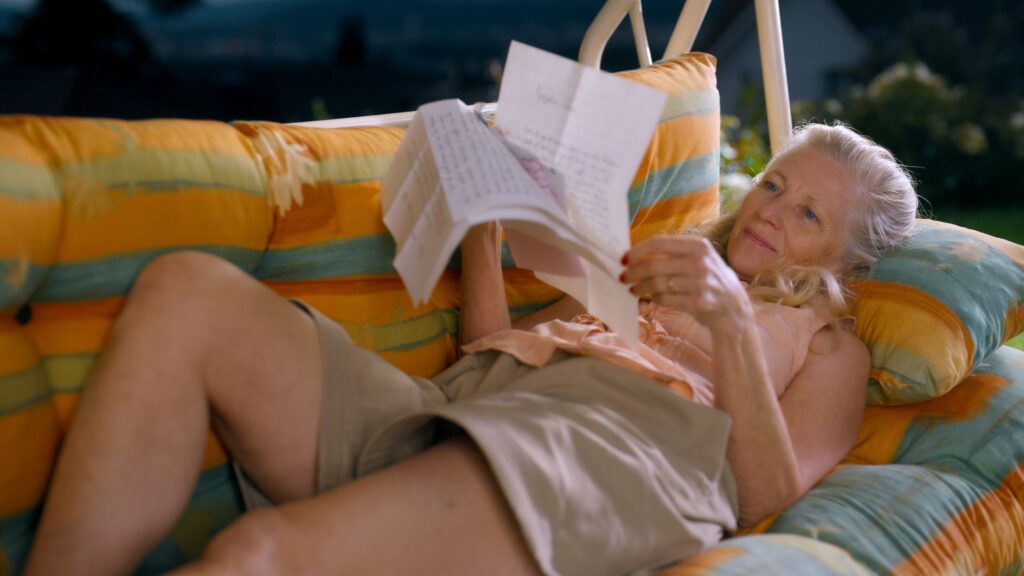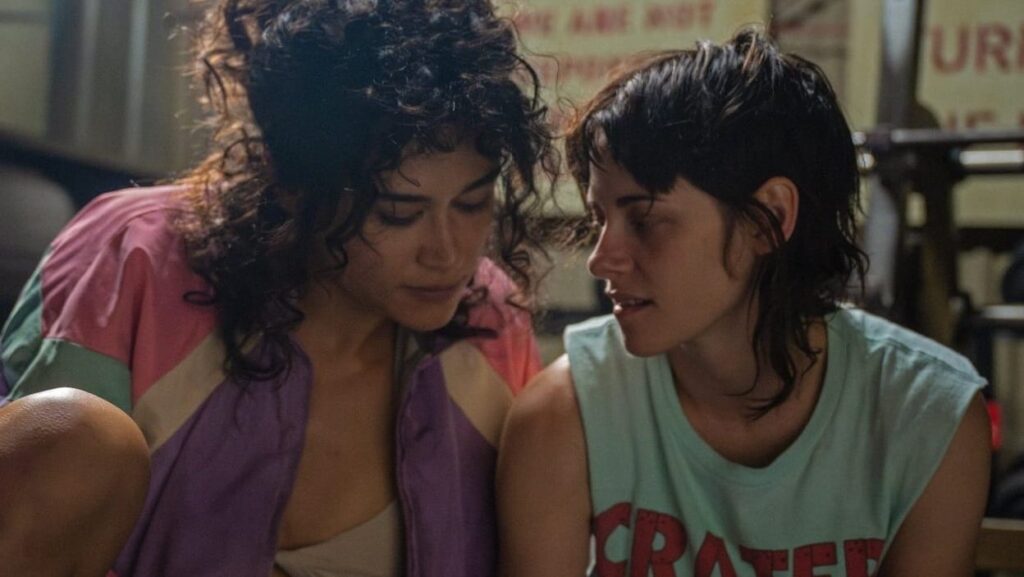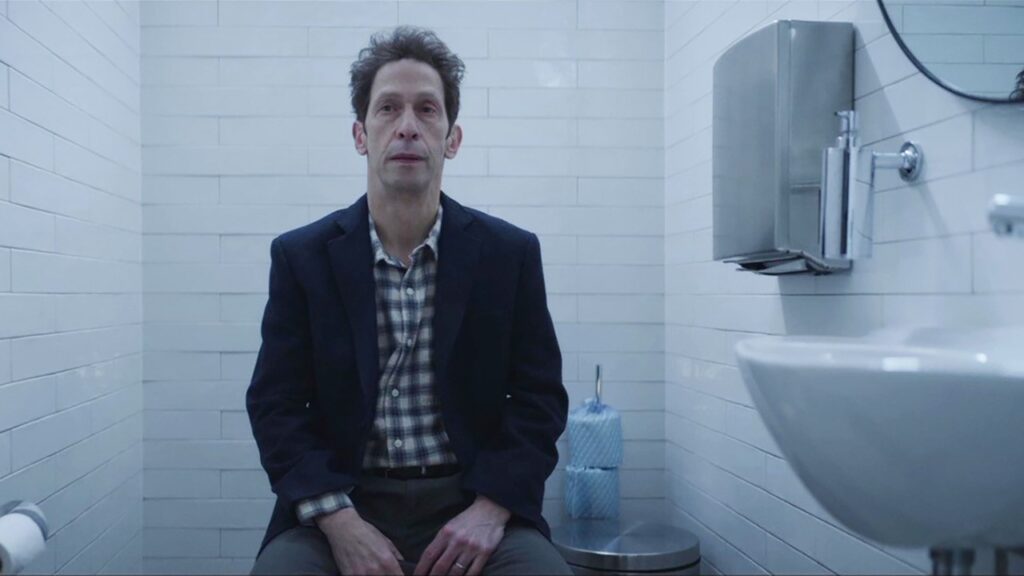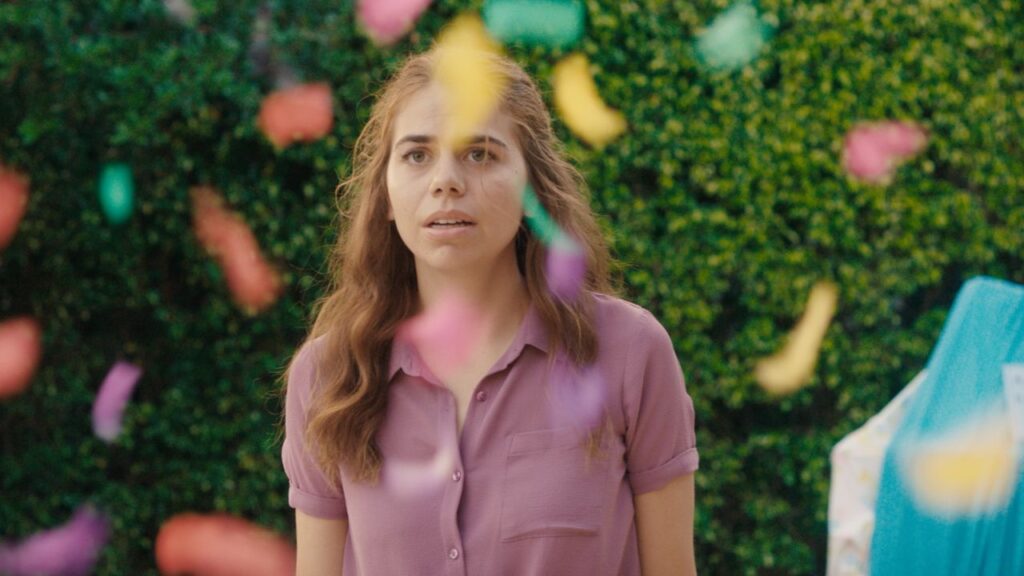
The star of the Italian genre-shifter La Chimera is really its director, Alice Rohrwacher, with her inventive storytelling. Rohrwacher’s story does have a protagonist, Arthur (Josh O’Connor – the marriage-age Prince Charles in The Crown); when we meet him, he is grubby, weary and returning to a Tuscan village where his heart has been broken by a woman and where he has been betrayed by friends. We wonder what has drawn this Italian-speaking Englishman back to a place that hasn’t treated him well.
He shows up at the villa of Flora (Isabella Rossellini), the mother of his disappeared girlfriend, Beniamina. Flora adores him, and her new housekeeper/companion/voice student Italia (Carol Duarte) is quite taken by him. He is also welcomed by a rabble of village ne’er-do-wells, as rowdy and vibrant as Arthur is surly, and as course as Arthur is cultured.
It turns out that these vulgar roughnecks are tombaroli – nighttime robbers of ancient Etruscan graves, who then sell the artifacts to a more sophisticated fence, to be trafficked in the shady marketplace of antiquity dealers, collectors and ethically-challenged museums. It turns out that Arthur, who seems to know a lot about archaeology, has a gift in water witching the locations of undiscovered tombs.
La Chimera, which has started out as a dramatic portrait of a man broken and alienated, becomes a heist procedural, and then a comic thriller, and a charming romance (as Italia gives Arthur “Italian lessons” in gestures, not vocabulary). There’s a sudden break in the fourth wall, a dream sequence with magical realism and even an homage to Mack Sennett. All the while, the tombaroli serve as a comic Grek chorus, right up to a neo-noir ending, dotted with yet more magical realism.
Here’s where La Chimera was a success for me. I always wanted to know what would happen next. I was continually surprised by the changes in tone. The Wife, however, thought that Rohrwacher threw in at least one genre too many.
But by bit, and rarely overtly, Rohrwacher unspools the mysteries of the backstory. Why is Arthur here? What happened to Beniamina? What is Arthur’s bond to these trashy scalliwags? Does Arthur have a professional training, a supernatural gift or both? By the end, we have a pretty good idea of the answers – well enough to make the story coherent without Rohrwacher spoonfeeding us all the exposition.
When I think about it, other than the novelty of the graverobbing, the plot points are individually familiar – a bitter release from prison, heartbreak from losing a love, the heist, the noirish fatalism. What keeps us on our toes is the inventiveness in the film’s evolving tone.
However, my head was also more involved than my heart, probably because I cared about the the Flora ad Italia characters so much more than I cared about Arthur.
The cast is very good, with Rossellini (what a treasure!) and Duarte as the standouts.
I appreciate a filmmaker who is always aware that she’s storytelling in cinema, instead of, for example, just filming a play. Rohrwacher takes full advantage of the opportunities to vary sequence, construction, and mood. La Chimera is a Must See for cinephiles.

